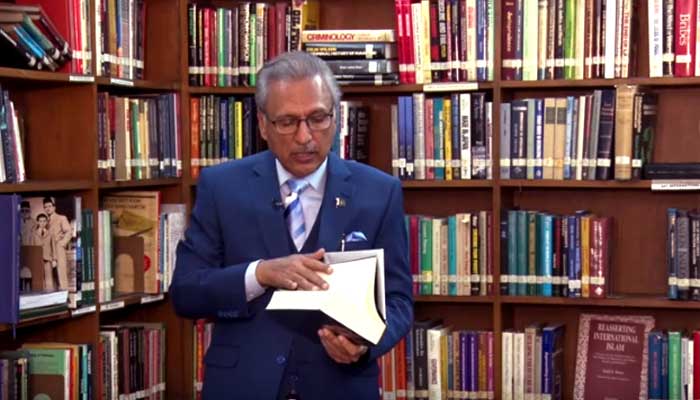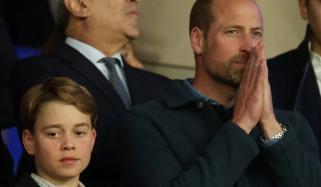
Its not just the Prime Minister of Pakistan Imran Khan, who shares and motivates the youth to read but now the President Arif Alvi has also shared some of his favourite books.
On Sunday, President Alvi shared a video message on his YouTube channel. In the message, he can be seen standing in a library and surrounded by hundreds of books, he shared some of his best reads from 2020.
The president took the opportunity to promote book reading culture in the country via his video message. While sharing some of his best reads, he advised the people, particularly the youth to develop the habit of reading. According to him, reading enhances youth’s exposure to the world and help them build string intellectual thinking traits.
While sharing the list of books he read in year 2020, he also revealed that he read different subjects to gain knowledge including, Islamic history, capitalism, history of the subcontinent, upheaval and exploitation in nations, human psychology, riots in India, physics, and artificial intelligence.
“I do nothing else but read books during travel, be it by car or air. I study books as I go home. Though I get few chances to read books in office, I do it when there is some gap,” he remarked.
On the top, the president ranked Revelations by Meraj Mohiuddin. The books presents a wide variety of scholarly viewpoints on the story of Holy Prophet Muhammad (Peace be Upon Him) and Quranic revelation.
He also strongly recommended Art of Thinking Clearly by Rolf Dobelli on human psychology and reasoning.
Other recommendations by the president included Capital and Ideology by Thomas Piketty (on economic inequalities and suggesting outlines for fairer economic system), Anarchy by William Dalrymple (on rise of East India Company and economic prosperity in subcontinent), Upheaval: Turning Points for Nations in Crisis by Jared Diamond (on the history of different nations like Japan, Soviet Union and their efforts to overcome crises), and Why Nations Fail: The Origins of Power, Prosperity, and Poverty by Daron Acemoglu and James Robinson (on an exploitative society which begets change and leads to revolution).















